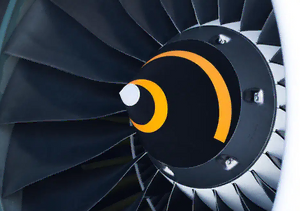Baker Industries: A LOOK AT MACHINED AIRCRAFT / FLY PARTS
https://www.bakerindustriesinc.com/a-look-at-cnc-machined-aircraft-fly-parts/
When we talk about precision machining, many different industries come to mind, such as aerospace, automotive, industrial manufacturing, and others. Aerospace and aviation in particular are some of the more stringent industries in terms of geometrical tolerancing and the array of materials used in different applications.
Inconel, Titanium, Magnesium, and Delrin are all some of the metal materials commonly used in aircraft, military vehicles, commercial planes, and more. Precision is vital in aerospace and defense because of the extreme conditions these machined parts will face, especially if deployed to outer space. Having finely machined/finished parts and components could be the difference between mission success and critical failure.
Baker Industries, a Lincoln Electric Company, is primarily focused on small-batch machining and 3D printing for the aerospace, automotive, space, and defense industries. Thanks to our constant investments in expansion, improvement, and the latest tools and technology, we are not only capable of design, CNC machining, additive manufacturing, fabrication, and quality assurance for prototypes and tooling, but also production and end-use parts.
We are skilled in metalworking applications as well as several thermoplastics and polymer materials that are either 3D-printed (via FDM machines) or by machining plastic workpieces using our vertical machining centers. The aerospace industry is increasingly seen as quick to adopt newer technologies like the ground-breaking 3D-printed rockets that the team at Relativity Space (Los Angeles, CA) is developing.
Baker Industries and Lincoln Electric Additive Solutions have worked with Tier-1 and OEM companies such as SpaceX, Rolls-Royce, Boeing, and others to help develop tooling, perform production-level CNC machining, 3D printing components, and more. Instead of having various parts and pieces welded or bolted together, consider printing aerospace components in one shot... no assembly required!
Below are some of the capabilities available in-house at Baker Industries and Lincoln Electric Additive Solutions:
Metal and Plastic Machined Fly Parts and Flight Hardware
Depending on the application, Baker Industries is capable of machining (and 3D printing) both metal & polymer materials for the aerospace, space, and defense industries.
Whether for tooling, jigs and fixtures, end-use parts, or prototypes, we’ve worked on them all and have the skills, expertise, and facilities to accommodate just about any job, regardless of the material needed.
Whether you need machining, additive manufacturing, fabrication, or something else, we have a team of experts standing by, waiting to assist you with your manufacturing needs.
Large-Scale Machined Fly Parts and Flight Hardware
Among our wide mix of CNC machinery, Baker Industries is home to several large gantry-style mills to accommodate extremely large parts. These 3-axis behemoths are especially suited for extremely large, machined parts for chassis, undercarriages, and other large components for aircraft, passenger vehicles, or heavy-duty armored vehicles within the aerospace, space, and defense industries, just to name a few applications.
Multi-Axis-Machined Fly Parts and Flight Hardware
Depending on the part complexity, Baker Industries features a variety of both 3- and 5-axis machinery to accommodate production machining with both horizontal and vertical milling machines. These machines feature enclosed guarding/shielding and contain a large volume of tool holder magazines for reduced cycle time & faster machining operations.
3D-Printed Fly Parts and Flight Hardware (Large and Small)
With aerospace parts becoming more complex, needing weight savings, and designs becoming more challenging to manufacture, additive manufacturing plays a huge part in assisting with all of these manufacturing characteristics. You’re no longer limited to a particular mold, design, or process for producing your end-use aerospace parts. Often, weight reduction is top of mind for aerospace designers and engineers, especially when trying to improve/innovate upon an existing design/product.
With additive manufacturing, weight savings can be achieved in a variety of different ways, either by using a plastic material versus metal, printing lattice structures/more hollow parts, or completely revamping a design to include less material than the original part/design.
At our Cleveland, Ohio facility, Lincoln Electric Additive Solutions features 19 robotic weld cells for extremely large parts with simple geometries. No manufacturing/machining operation in the aerospace industry is complete without a proper Quality Assurance inspection to ensure compliance with various ISO standards. At Baker, we deploy several metrology devices combined with validation and verification software to assist our technicians in automating the quality inspection process.
Continuous improvement and lean manufacturing are at the core of what we do, and we have countless reviews and referrals that speak to the quality of work our team performs.
Something such as a fully assembled and operational rocket with payload can often be in the hundreds of millions of dollars when parts, labor, assembly, miscellaneous overhead, and other costs are accounted for.
Aerospace, space, and defense companies simply cannot afford to have one critical component or system fail on them when they are sending something that expensive into space. Aside from the software, systems, and crew needed to send something into space, there are thousands of machined components, all of which play a vital role in getting something in orbit safely and in one piece.
Baker Industries has proven itself for nearly 30 years as a trusted component supplier to a variety of different aircraft, satellite, and space system OEMs. To learn more about the past work we’ve done, browse through our website here or contact us today.

